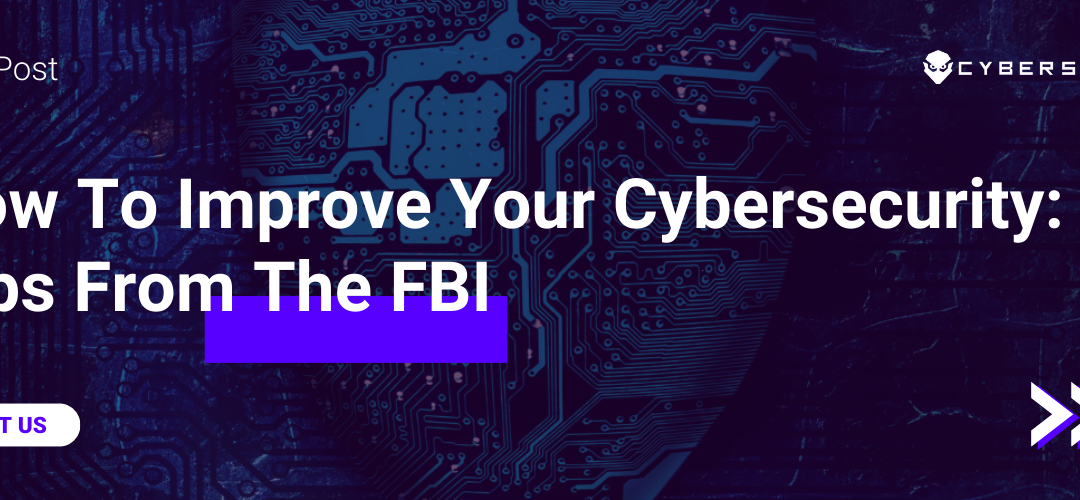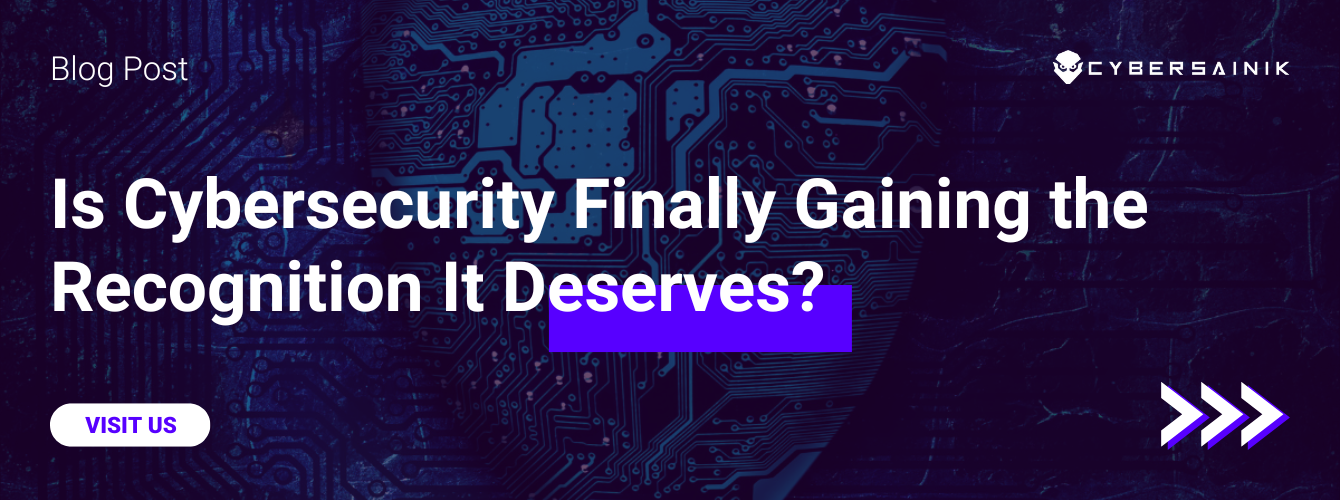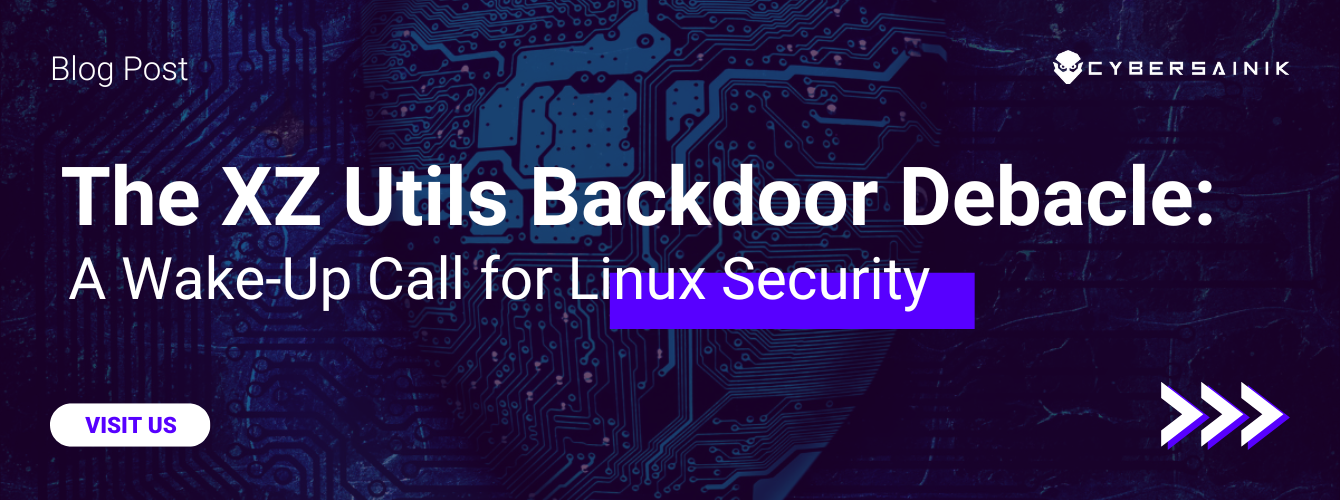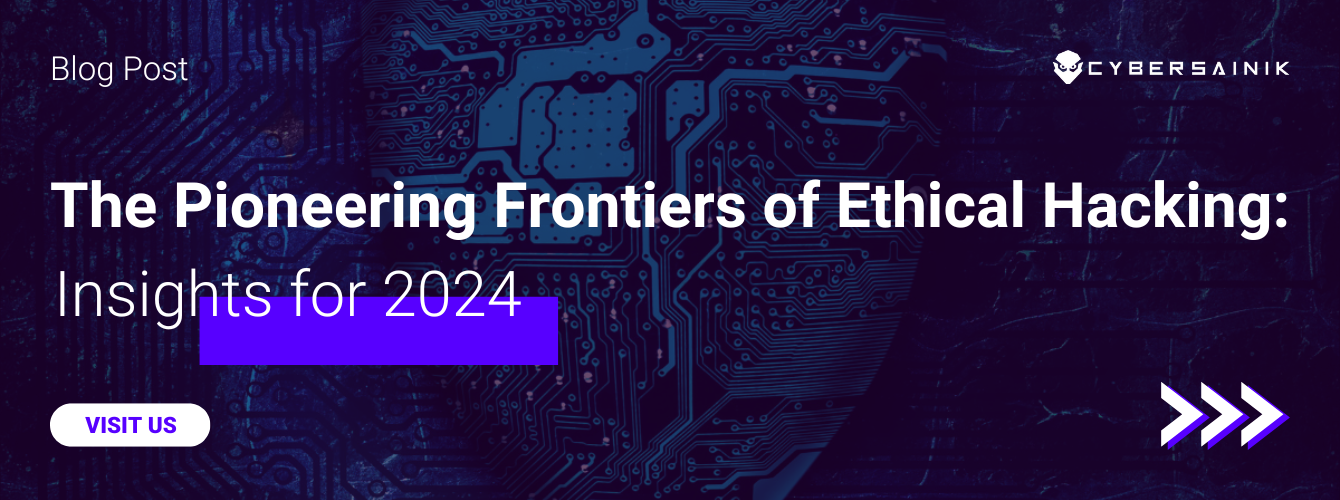Cybersecurity is as hot a topic as ever with threats increasing across industries, sectors, and beyond. Not only are tried & true brands upping their protective measures (see here), but so are individuals. With new products and features being released regularly to help combat cyber warfare, it can be hard to keep up with the latest practices. The team here at Cyber Sainik is prepared to help.
In this blog post, we’ll be exploring the Federal Bureau of Investigation’s (FBI) insights on cybercrime along with their best recommendations for combating increasing cybersecurity threats. Below you’ll find quick tips and actionable advice from the FBI on how to help maintain your cyberhealth and protect your data. According to the FBI, learning how you can protect yourself is step 1.
Step 1: Learn how to protect your computer and/or devices from cyber threats
The FBI says that the same advice you give to your kids when they begin driving applies to all individuals looking to engage with the online world safely. This advice looks something like this:
- “Don’t explore unsafe areas”
- “Lock up”
- “Reduce your vulnerability and you reduce the threat”
Below are a few important & effective actions you can take to help protect your network and data from potential threats.
1) Use a firewall (And keep it ON!)
Firewalls help to protect your computer from cybersecurity threats. These threats look like hackers trying to crash a device, remove important information, or even steal passwords and sensitive data. Software firewalls specifically are recommended by the FBI for personal or individual computers. In some operating systems, firewall software is prepackaged and already included. It can also be purchased separately, though.
2) Install or update antivirus software
As shared by the FBI, “Antivirus software is designed to prevent malicious software programs from embedding on your computer.” Keeping your antivirus software up to date helps to ensure its ability to “disarm or remove” the threat.
3) Install or update your antispyware technology
Antispyware technology aims to spot software covertly installed on your computer. This covert installation of software allows for others to access your device’s activity. More specifically, spyware allows cybercriminals to access your device to collect private information and even bombard you with unwanted pop-up ads. As with antivirus software, some operating systems provide spyware protection and other reliable options can be found online. The FBI cautions, though, to “Be wary of ads on the Internet offering downloadable antispyware—in some cases these products may be fake and may actually contain spyware or other malicious code. It’s like buying groceries—shop where you trust.” For more information on Cyber Sainik’s provision of laptop security services, navigate over to our site’s Laptop Security page, or click here.
4) Keep your operating system updated
Technology companies often release updates for their software. These updates are released for several reasons and address things like technology requirements and user interface changes. It’s not uncommon, though, for updates to be released in response to potential or incoming threats. For example, in Fall 2021 Apple released a software update to fix holes in their product’s security. To help ensure your device/computer’s ability to ward off potential or incoming threats, keep your operating system updated.
5) Watch your downloads
We’ve likely all seen an email from an unfamiliar sender that includes a questionable attachment. It’s cybercrime tactics like this that can evade even the most stringent cybersecurity measures. It only takes 1 click to download a seemingly innocuous .zip file that infects your entire operating system. If that system is connected to a larger network, the impacts of an infected system can be catastrophic, and costly. With this, never open an email attachment from an unfamiliar email address. And when you can, verify the authenticity of the email with the sender themselves. For more information on these kinds of tactics, feel free to explore our resources page. Specifically, we recommend looking at the “Social Engineering Red Flags” resource from our security partners at KnowBe4. You can also check out our site’s Email Security page for more details on how we can assist in your organization’s email protection & security.
6) Turn off your computer
Keeping your computer on 24/7 may add a little extra convenience to your online exploration. Unfortunately, this practice also makes hacking your computer more convenient, too. Per the FBI, “Beyond firewall protection, which is designed to fend off unwanted attacks, turning the computer off effectively severs an attacker’s connection—be it spyware or a botnet that employs your computer’s resources to reach out to other unwitting users.” So spare yourself potential headaches & give your operating systems a break by shutting down, with the added benefit of improved cybersecurity.
To learn more about how you can improve your security solutions, you can always reach out to our team. We provide email security solutions, vulnerability protection, endpoint detection and response along with so much more. To talk with our team about cybersecurity solutions for your organization, contact us today.
To learn more about the information discussed in this blog post, please feel free to explore our Source list below.
Sources:
https://www.fbi.gov/investigate/cyber
https://www.fbi.gov/scams-and-safety/on-the-internet
https://www.npr.org/2021/09/14/1036869715/apple-issues-critical-patch-to-fix-security-hole-exploited-by-spyware-company
https://cybersecurityventures.com/hackerpocalypse-cybercrime-report-2016/




